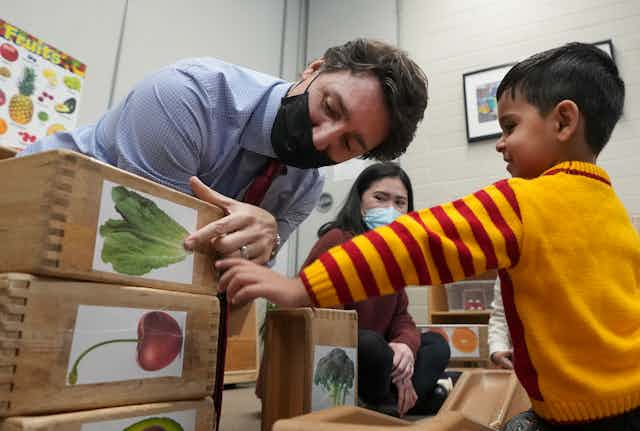On Oct. 8 last year, the United Nations Human Rights Council recognized that a clean, healthy and sustainable environment is a human right.
Further to this, a historical ruling by the United Nations Child Rights Committee decided a country can be held accountable for the negative impacts of its carbon emissions on children both within and beyond its territory.
Canada is investing $27 billion in early learning and child care. All 13 provinces and territories signed onto the agreement with a promise of reducing parent fees and increasing access for children zero to five years of age.
Canada’s federal early learning and child-care investment is an opportunity to think green within the early learning and child-care sector and re-evaluate the status quo. It’s a chance to ensure sustainability and climate goals are incorporated both in short- and long-term policies, and in current programs and classrooms.
Canada is a laggard
As legislation is being developed, where new early learning and child-care programs are located, how they are designed, constructed and resourced, can either add to the problem of climate change or help mitigate it.
Right now, the nexus of early childhood education and sustainability requires a lot more funding, scholarship and action.
Read more: How early childhood education is responding to climate change
The May 2022 release of UNICEF’s Report Card 17 specifically addressed environmental stressors on the well-being of children. Overall, it ranks Canada 28 out of 39 rich countries. We stand alongside the worst of our peers in municipal waste and resource consumption, and 38 of 39 for physical and policy environments that surround the child.
Children are the least responsible for, but bear the greatest impact of, the climate crisis. Yet, the impact is not evenly distributed. Climate change adds to another crisis — that of inequality.
Poor individual, societal and policy decisions effect certain communities of children more than others: those living in poverty, in Indigenous and northern communities and those who are racialized.

Sustainability education and action
Early years curriculum must include sustainability education and action, and these must be reflected in what happens in the classroom. Climate experts agree that one critical way to address the climate crisis is to empower Indigenous communities, and to support meaningful dialogues with Indigenous knowledge holders to determine sustainable and co-operative steps forward.
Read more: Children make connections to Aki (Earth) through Anishinaabe teachings
The environmental challenge is greater than any one single stakeholder. For every Greta Thunberg, there are millions of children that are collateral damage from policy decisions, naïve contributors to the problem, or both.
Pro-environmental attitudes and behaviours are critical and foundational for effectively addressing climate change. Children develop these by age seven. Transformations in systems and policies, environmental awareness education and the knowledge, attitudes, behaviours, practices and beliefs that young children hold about the environment in their early years are now matters of survival.
Governments must approach climate action in a concerted manner. This is an interconnected problem requiring intersectional approaches. The complexity of the challenge necessitates the mobilization of every sector.
In Canada’s early learning and care sector, parallel with well-established quality criteria within early childhood education programs, principles and standards of practice should incorporate aspects of the built environment that include green spaces, climate sustainability and Indigenous partnerships and collaboration.

More than sustainable buildings
Some researchers based in the United States are looking at examples in Canada as positive models for both our investments in child care and approaching expansion in a sustainable way.
For example, British Columbia is making steps forward. A recent report by the Coalition of Child Care Advocates of B.C. demonstrates five ways the early learning sector and climate change policy can intersect:
Protect children’s environmental health: pay attention to where programs are built as much as how they are built.
Improve buildings: new builds should be sustainable, net-zero and climate resilient; child care capital plans should include funds for Indigenous-led program facilities.
Reduce transportation emissions: when child care is embedded in schools, parents spend less time in cars travelling to pick up their children in various places.
Power the clean economy: embed climate goals in all public investments, including child care.
Help families engage: adding sustainability and climate responsibility to curriculum and engaging families not only helps the next generation, but supports behaviour change today.
These issues should have our anxious concern. Whether we are parents, scholars, educators, members of governments or the community large, if we are all not champions for climate change, we are hindering progress and part of the problem. Canada’s $27-billion child-care investment should not be another missed opportunity.


